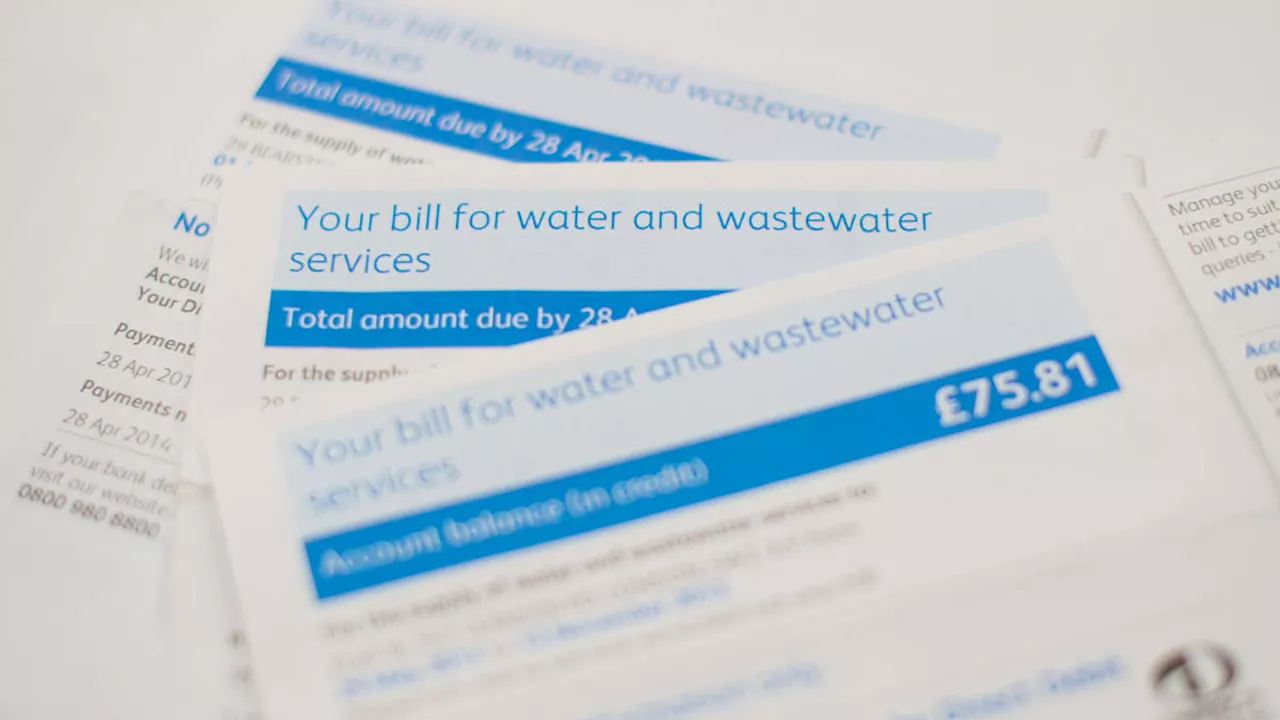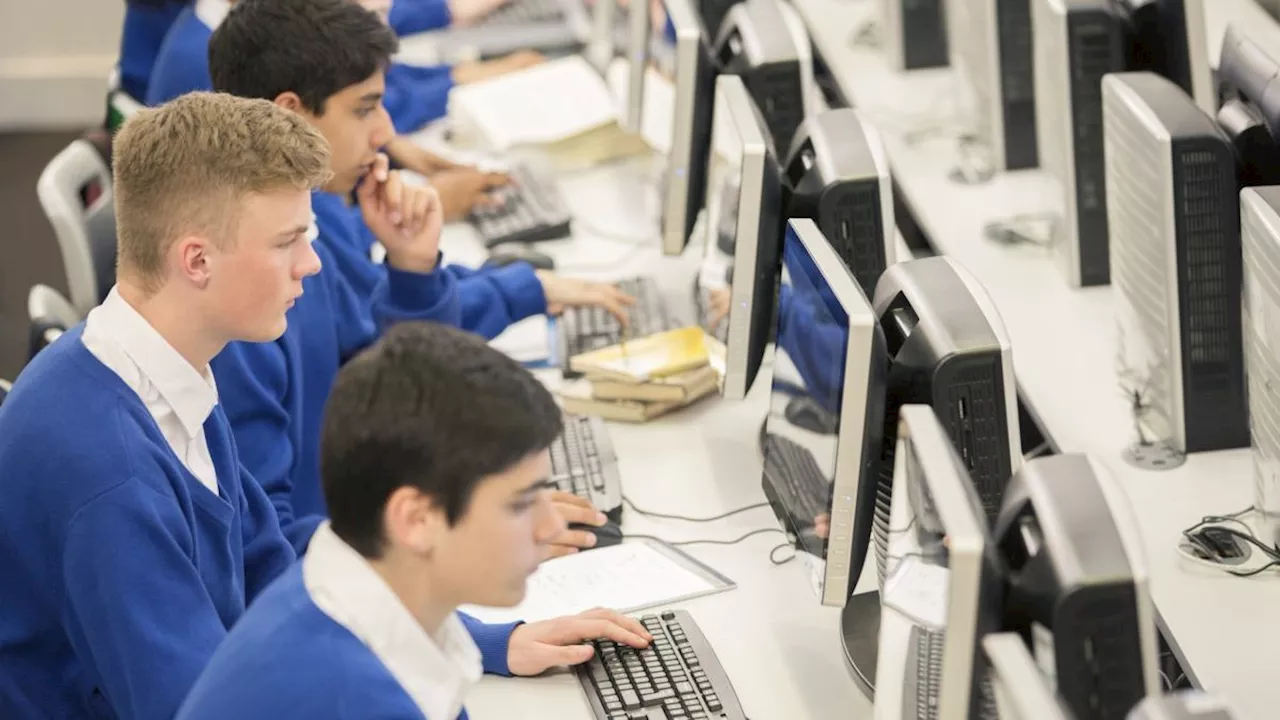The International Baccalaureate (IB) is considering implementing open book exams in all subjects for its UK schools as early as 2030. This move could inspire similar changes in GCSEs and A levels, encouraging critical thinking and creativity. The plan involves allowing students to access textbooks and online resources during exams, reflecting how students will engage with technology in the future.
Pupils in some UK state schools could be allowed to use open textbooks in exams in all subjects and take them online as soon as 2030. The move is being backed by the UK’s largest secondary head teachers’ union which says there is “a lot of sense” in open book exams as they encourage “thinking critically and creatively”. And an exams expert has suggested that the change could lead to similar changes in GCSEs and A levels if the plan is successful.
Matt Glanville, the IB’s director of assessment, said open book exams were “exactly where the direction of travel should be going” as they represent a shift away from “memorised facts” and towards “complex problem-solving”.\Asked about the possibility, the watchdog said it was “open to innovations that deliver qualifications which reliably reflect what students know, understand and can do and which are fair and accessible for students”. The IB operates in more than 160 countries, but the diploma is only run in 102 UK schools, 22 of them state secondaries. However the development could influence what happens in the rest of the sector. Professor Alan Smithers, director of the Centre for Education and Employment Research at the University of Buckingham, said he did not think it would have a direct impact on A levels and GCSE. But he added that the Government’s curriculum and assessment review might be inspired by the IB plans. “It is possible, since they’re wanting to make these qualifications more accessible and broader, that the people making the recommendations there may take notice of this change in the IB,” the academic said. \Mr Glanville said the IB was working with major UK GCSE and A level exam boards including AQA, Pearson Edexcel and OCR on a plan to show Ofqual that digital assessment is “the best way forward”. He said his board’s move towards open book exams in all subjects – which involves taking textbooks and keynote sheets into assessment halls – fitted with its wider goal to move away from traditional exam formats. This would mean some 5,000 students at the UK’s IB schools taking exams “online”, allowing them to access data, news reports and video footage to support the specific assessment. “If you’re studying modern history, you’ll be looking at news reports and video footage,” he said. “You can’t get that in a paper-based exam.” He added that science students would be able to create and interpret their own data rather than analysing a fixed data table on paper. “If you think about how these young people are going to engage with technology for the rest of their lives, why is it their exams are being done using pen and paper?” he asked. Online exams would still be expected to take place in supervised exam halls and a specific browser will be used that enables the tools needed for the assessment while blocking off other computer functions, Mr Glanville added.\Edexcel GCSEs in English language and English literature were already set to be offered on screen in this summer’s exam series, subject to Ofqual approval. In December 2023, the OCR board said it would offer a digitally-assessed GCSE in computer science for pupils starting their course in 2025. And last year, AQA laid out plans for on-screen exams by 2030, saying it hoped the reading and listening components of GCSE Italian and Polish would be the first to move to digital exams in 2026. But the exam board has since said it would be pushing back its timetable because the plans are still waiting for regulatory approval. Last summer, Sir Ian Bauckham, Ofqual chief regulator, said plans for digital exams should be treated with “extreme caution” due to fears all schools will not be able to run assessments fairly. Many schools have “weak connectivity, weak wifi systems, weak system security, weak system resilience” due to years of underinvestment in the school estate, he said. Open book exams have already been used in some GCSEs and A levels like English literature. But the IB’s plan would be different because it would cover all subjects. Tom Middlehurst, assessment specialist at the heads’ union the Association of School and College Leaders, said: “There is a lot of sense in the idea of open-book exams as, instead of simply testing a student’s ability to memorise and recall facts, they place a greater emphasis on thinking critically and creatively – something which employers often cite as vital skills. “The exam system as it currently stands, particularly at GCSE, is heavily weighted towards memorisation as a result of the previous government’s reforms. “Any new approach to the general exam system would need to be meaningfully consulted on and trialled before being introduced.” The IB is currently in the second year of a multi-year research project to see whether open book exams make a positive impact on the student experience
EDUCATION INNOVATION EXAMS DIGITAL ASSESSMENT CRITICAL THINKING
United Kingdom Latest News, United Kingdom Headlines
Similar News:You can also read news stories similar to this one that we have collected from other news sources.
 LFC Foundation sets bold ambition for 2030 as power of Liverpool revealedLFC Foundation aims to support 500,000 people with its efforts over the next five years
LFC Foundation sets bold ambition for 2030 as power of Liverpool revealedLFC Foundation aims to support 500,000 people with its efforts over the next five years
Read more »
 Australia moves to drop some cryptography by 2030 – before quantum carves it upThe likes of SHA-256, RSA, ECDSA and ECDH won't be welcome in just five years
Australia moves to drop some cryptography by 2030 – before quantum carves it upThe likes of SHA-256, RSA, ECDSA and ECDH won't be welcome in just five years
Read more »
 BBC Sport and ITV Share World Cup Rights for 2026 and 2030BBC Sport and ITV have secured a deal to jointly broadcast the men's Fifa World Cup in 2026 and 2030 across their TV, audio, and digital platforms. This partnership ensures continued free-to-air coverage of the tournament for viewers in the UK.
BBC Sport and ITV Share World Cup Rights for 2026 and 2030BBC Sport and ITV have secured a deal to jointly broadcast the men's Fifa World Cup in 2026 and 2030 across their TV, audio, and digital platforms. This partnership ensures continued free-to-air coverage of the tournament for viewers in the UK.
Read more »
 BBC and ITV Share World Cup Rights for 2026 and 2030BBC and ITV will jointly broadcast the 2026 and 2030 FIFA World Cups across their TV, audio, and digital platforms, ensuring continued free-to-air coverage of the tournament.
BBC and ITV Share World Cup Rights for 2026 and 2030BBC and ITV will jointly broadcast the 2026 and 2030 FIFA World Cups across their TV, audio, and digital platforms, ensuring continued free-to-air coverage of the tournament.
Read more »
 Water Bills to Surge by 20% in England and Wales by 2030Ofwat is expected to announce a significant increase in water bills for households in England and Wales. The average bill is projected to rise by £20 per year, reaching £542 by 2030. The increase aims to fund £88 billion in investments to address pollution and water shortages.
Water Bills to Surge by 20% in England and Wales by 2030Ofwat is expected to announce a significant increase in water bills for households in England and Wales. The average bill is projected to rise by £20 per year, reaching £542 by 2030. The increase aims to fund £88 billion in investments to address pollution and water shortages.
Read more »
 Water Bills Set to Surge by at Least 20% by 2030Households in England and Wales face significant increases in water bills, projected to rise by at least 20% by 2030. Ofwat, the water regulator, is set to announce the price hike on Thursday, aiming to fund £88 billion of investment in improving water services and addressing pollution and water shortages. While initial proposals allowed for a 21% average increase over five years, water companies have since requested even higher hikes, potentially reaching 40% by 2030. Thames Water, facing a major financial crisis, has requested a 53% increase to facilitate a £3 billion bailout.
Water Bills Set to Surge by at Least 20% by 2030Households in England and Wales face significant increases in water bills, projected to rise by at least 20% by 2030. Ofwat, the water regulator, is set to announce the price hike on Thursday, aiming to fund £88 billion of investment in improving water services and addressing pollution and water shortages. While initial proposals allowed for a 21% average increase over five years, water companies have since requested even higher hikes, potentially reaching 40% by 2030. Thames Water, facing a major financial crisis, has requested a 53% increase to facilitate a £3 billion bailout.
Read more »
